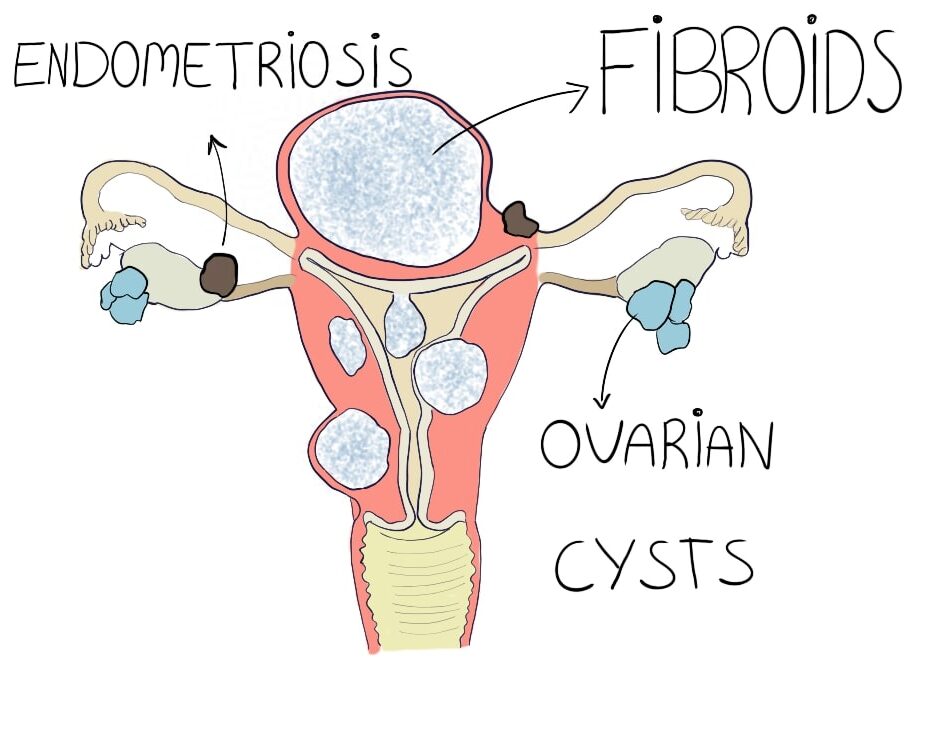1. You have fewer healthy eggs:
Women are born with a limited number of eggs. And those are all you have for your whole life because you can’t produce new ones.
Many of those eggs will be useless by the time you reach puberty. Then, you’ll start releasing one every month with each period).
By age 35, your ovarian reserve will be much more limited. Also, the remaining eggs will not be as healthy as the first ones.
2. Hormonal changes
As you grow older, your hormone levels get more chaotic. There are ups and downs and so, your ovulation cycles are not steady either.
That makes it harder to predict the best days for you to get pregnant.
3. Higher risk of gynecological lesions
The most common are endometriosis, uterine fibroids, and ovarian cysts.
These lesions can take up some valuable space in your uterus, leaving less room for your embryo.
If your ovaries are affected, you may also have trouble ovulating.

4. You have a higher risk of chromosomal abnormalities
When we are older, there is a higher risk of genetic mistakes and chromosomal alterations.
Chromosomal alterations can cause disorders such as Down Syndrome but also they can cause miscarriage.
So, even if you manage to get pregnant, you risk losing your baby.
5. Your fertility potential goes down
Your fertility potential goes down with time.
That means not every cycle is 100% effective, so it will take longer for you to get pregnant (until you “hit” the proper cycle).
Finally, if your boyfriend is older, his fertility may be worse, too, especially if he smokes, drinks, or has diseases like diabetes or autoimmune disorders.
Of course, that doesn’t mean you can’t get pregnant after 35. In fact, many women get pregnant even in their early 40s.
Remember that it may be harder, so be patient.
If you’re over 35 and have trouble getting pregnant, seek advice from a specialist.
Leave a Reply